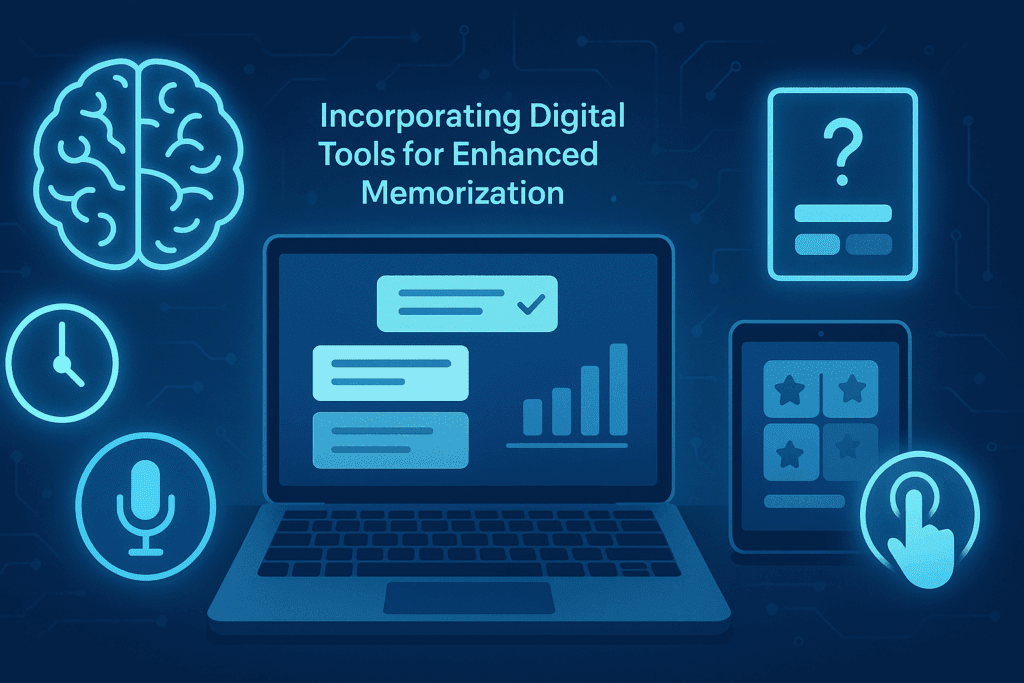In the fast-paced world of academic and professional demands, mastering memory techniques has become a key asset. Whether you’re preparing for an exam, delivering a last-minute presentation, or trying to absorb complex information quickly, the ability to memorize something fast in 5 minutes can dramatically enhance your cognitive edge. While it may seem like a lofty goal, combining science-backed mental strategies with natural herbal support can make rapid memory encoding not just possible, but practical. This article explores how to memorize something fast in 5 minutes using proven learning techniques, supported by herbal cognitive enhancers that optimize mental clarity, focus, and retention.
You may also like: Best Herb for ADHD Support: How Natural Remedies and Herbs for ADHD Women May Help Boost Focus and Calm
Understanding the Science of Rapid Memory Encoding
To grasp how to memorize fast in 5 minutes, it’s essential to understand how memory works at a neurological level. Memory formation begins with encoding, where the brain processes sensory input and transforms it into a storable format. The more emotionally charged, novel, or repeated the input is, the more likely it will move from short-term to long-term memory. One reason many students search for how to memorize something in 10 minutes or even memorize overnight is that they lack the foundational strategy for effective encoding.
Instead of passive review, cognitive science supports active recall and spaced repetition as far more effective for memorization. When we force the brain to retrieve information actively, we reinforce neural pathways that solidify long-term retention. For those wondering how to memorize something for a test or how to memorize something fast in 5 minutes, these principles are critical. Techniques like the Pomodoro method, chunking, and visual association also accelerate learning, especially when paired with strategic breaks and hydration.

Herbs that Sharpen the Brain in Minutes
While training your brain is essential, natural ingredients can significantly boost cognitive performance within minutes. Bacopa monnieri, for example, is a well-known adaptogen in Ayurvedic medicine recognized for its ability to improve memory consolidation and reduce anxiety. Many users report clearer thinking and faster recall shortly after consumption, making it ideal for those trying to immediately remember definitions or facts.
Another standout is Ginkgo biloba, a circulatory enhancer that increases blood flow to the brain. Ginkgo has been clinically linked to improved mental alertness and faster reaction times, both necessary for memorizing things fast for exams or during high-pressure moments. Gotu kola, a lesser-known but powerful botanical, supports brain health by enhancing synaptic communication and calming the nervous system—ideal for those seeking how to remember information for a test under stress.
Tips on Memorizing Lots of Definitions
Definitions are among the most commonly memorized elements for exams. One of the most effective tips on memorizing lots of definitions is to turn them into a story. Storytelling engages the brain’s narrative processing centers, allowing abstract terms to become tangible experiences. This technique is a particularly good way to remember tangible facts that otherwise feel disconnected.
Using mnemonic devices like acronyms or rhyming structures also helps when processing multiple definitions. For example, medical students often use “SOAP” (Subjective, Objective, Assessment, Plan) to recall clinical documentation steps. When learning how to memorize something in 5 minutes, compressing definitions into simple, vivid constructs is highly effective. Furthermore, engaging the senses—such as associating a definition with a smell, color, or movement—enhances memory retrieval.

Creating a Memory-Optimized Study Environment
The space around you dramatically impacts your ability to absorb and retain information. If you’re figuring out how to remember what you read for exams or how to learn text fast, start by assessing your environment. Is it cluttered? Noisy? Poorly lit? Cognitive function thrives in spaces that are quiet, well-ventilated, and free from visual chaos.
Consider aromatherapy as part of your study routine. Scents like rosemary and peppermint are shown to stimulate alertness and focus. Many students who need to memorize overnight or remember stuff when studying find that sensory enrichment in their environment plays a surprising role in how long material sticks. Lighting also matters—natural light supports circadian rhythms and mental acuity, giving you an edge when trying to memorize something for a test.
Techniques to Memorize Overnight Without Burnout
Cramming is often seen as a last resort, but when done with intention and support, it can yield surprisingly effective results. If your goal is to memorize overnight, begin by preparing the body and mind several hours before the session. This means staying hydrated, avoiding caffeine too late in the evening, and taking a light walk to increase oxygen flow to the brain.
Sleep plays a crucial role in memory consolidation. Even if you only have time to nap, do so strategically. Research shows that even short bouts of sleep following a learning session can lock in information more effectively. To reinforce material, review it right before bed and again upon waking. This method, known as “sleep reactivation,” is especially beneficial for those needing to learn how to memorize fast in 5 minutes or within tight timeframes.
Natural herbs like Bacopa and Ginkgo biloba enhancing mental focus and recall, supporting how to memorize something fast in 5 minutes
How to Memorize Something in 10 Minutes With Efficiency
For those who have a little more breathing room, understanding how to memorize something in 10 minutes requires stacking multiple methods. Begin by identifying the core concept or structure behind the material. Breaking it into categories or using mind maps is a great way to simplify complex information.
Active recall works best here: read a paragraph, then close your eyes and try to say it back. Repeat this with slight variations to reinforce neural pathways. If you’re visual, sketch the concepts. If you’re auditory, record and play them back. Adding herbal support—like a dose of Rhodiola rosea or Lion’s Mane mushroom—can amplify cognitive performance during this window, making the 10-minute period significantly more productive.
How to Learn Text Fast Through Multi-Sensory Integration
Learning text quickly isn’t about sheer willpower—it’s about using multiple brain pathways. Reading aloud, writing by hand, and creating mental images all activate different parts of the brain. This multisensory integration helps embed the material deeply, especially for people seeking how to memorize things fast for exams or professional presentations.
Music without lyrics, particularly baroque or classical, can help some learners sustain attention. For others, light physical movement—like tapping a pencil or walking while reciting—activates kinesthetic memory. Techniques like these are especially useful when memorizing things 30 seconds long, such as quotes, poems, or formulas.

The Role of Visualization and Imagination in Fast Memorization
Visualization isn’t just a creative exercise—it’s a brain-based strategy backed by cognitive science. When learning how to memorize something fast in 5 minutes, mentally transforming information into images helps bypass linear recall and taps into spatial memory, which is stronger in most individuals.
To implement this, close your eyes and picture a room where each object represents a concept or keyword. As you mentally walk through the space, retrieve each piece of information. Known as the method of loci, this technique is especially powerful for students who struggle with how to remember information for a test when under time pressure.
Using Herbs and Adaptogens to Build Long-Term Memory Resilience
While the focus of this article is on quick memorization, long-term memory health is also essential. Nootropics like Lion’s Mane mushroom promote nerve growth factor (NGF), helping neurons repair and connect over time. This enhances not only short-term recall but also the ability to immediately remember newly acquired knowledge.
Adaptogens such as ashwagandha and tulsi modulate cortisol levels and reduce mental fatigue. This is particularly important for those trying to memorize overnight or absorb large quantities of text under stress. These herbs buffer the impact of adrenaline on the brain, preserving clarity and supporting healthy neurotransmitter balance.
Incorporating Digital Tools for Enhanced Memorization
Technology offers powerful tools for learners trying to figure out how to memorize something in 5 minutes or less. Apps like Anki and Quizlet use spaced repetition algorithms to reinforce memory at optimal intervals. These tools can transform dry memorization into an interactive game, increasing engagement and retention.
Voice memos are another underutilized tool. Recording yourself explaining a concept and playing it back engages auditory learning pathways. Additionally, using browser extensions to block distractions or set study timers helps build mental stamina for focused, time-bound learning sessions—perfect for how to memorize for exams or how to memorise for a test efficiently.

Frequently Asked Questions: Advanced Memory Techniques and Cognitive Insights
1. What is the most effective way to memorize something fast in 5 minutes when under pressure?
When time is short and stress levels are high, your brain defaults to survival mode, which can suppress higher cognitive function. To overcome this, try chunking the information into micro-units of meaning, using intense visual associations and storytelling. For instance, if you’re trying to memorize a speech, visualize a dramatic narrative for each paragraph. This approach taps into the brain’s visual memory circuits, making it easier to recall content. If you’re wondering how to memorize something in 5 minutes, remember that emotional context—such as imagining the consequences of forgetting—can also heighten memory consolidation in the moment.
2. Are there any neurological tricks to help immediately remember complex definitions or jargon?
Absolutely. One powerful method involves dual coding: combining text-based memory with imagery. When you’re learning technical terms or legal definitions, sketch a symbol or create a quirky mental image that represents each term. This dual encoding leverages both hemispheres of the brain. Using this method, even students dealing with tips on memorizing lots of definitions have found they can immediately remember terms when asked under exam conditions. Mnemonics that include rhymes, acronyms, or even absurd humor also improve retrieval speed dramatically.
3. What are some good ways to remember tangible objects or physical arrangements?
Kinesthetic learning, or learning by doing, is particularly effective for this. If you need to remember how furniture is arranged in a room or how surgical instruments are laid out, physically mimicking or walking through the setup embeds that memory. These good ways to remember tangible things rely heavily on procedural memory, which is distinct from factual recall and rooted in repetition and motion. To anchor this even further, narrate your actions aloud or record a voice memo while doing it—auditory reinforcement helps cement the memory.
4. Can short-term memories be effectively retained using techniques for things to memorize 30 seconds long?
Yes, but the key lies in what cognitive psychologists call the “primacy and recency effect.” Focus on repeating the first and last parts of what you’re learning if it’s things to memorize 30 seconds long. Repetition and visualization during that brief window—paired with exaggerated, sensory-rich mental images—helps encode the memory. Breathing exercises beforehand can also activate the parasympathetic nervous system, preparing your brain to absorb and retain even fleeting information more efficiently.
5. How can someone memorize overnight without disrupting sleep cycles?
The idea of how to memorise something overnight hinges on two principles: pre-sleep priming and REM sleep reinforcement. Reviewing key information right before sleep helps the hippocampus begin encoding memories more deeply. Pair this with white noise or binaural beats during sleep, which some studies suggest can enhance slow-wave activity linked to memory consolidation. If you’re strategizing to memorize overnight, avoid blue light exposure and caffeine, as these disrupt melatonin production and interfere with your brain’s ability to cement information during deep sleep.
6. How to memorize fast in 5 minutes when preparing for a timed presentation?
Use a technique called “semantic compression” where you distill each segment into one vivid word or image. This serves as a memory anchor you can expand upon during your talk. Practicing with escalating recall intervals—30 seconds, then 1 minute, then 3 minutes—allows you to memorize fast in 5 minutes under stress. Visualization, paired with self-testing, is key. Imagine giving the presentation in a different location each time to create spatial memory hooks that enrich recall.
7. What’s the best strategy for how to memorize something in 10 minutes for long-term use?
To effectively commit something to long-term memory in just 10 minutes, use spaced retrieval with escalating intervals: study, recall after 2 minutes, then after 5, then at the 10-minute mark. Combine this with elaborative rehearsal—relating new info to something you already know. If you’re learning a formula, connect it to a real-life example or your own experiences. How to memorize something in 10 minutes isn’t about repetition alone; it’s about building interlocking memory networks that reinforce each other over time.
8. What psychological conditions affect how to memorize something fast in 5 minutes?
Anxiety, ADHD, and even mild sleep deprivation can impair short-term recall, making it harder to memorize something fast in 5 minutes. However, high performers often use grounding techniques like the 5-4-3-2-1 method (naming 5 things you see, 4 you feel, etc.) to re-center and improve cognitive clarity. For individuals with these challenges, multisensory input (touch, sound, visuals) provides extra reinforcement. Using apps with timed memory drills can also simulate pressure environments and improve response times.
9. Are there lesser-known memory hacks for how to learn text fast before an exam?
One lesser-known trick is using emotional encoding—read the text while imagining a scenario where it deeply affects your life. This embeds the learning in your limbic system, making it easier to recall. Another method involves “interleaving,” where you study different types of content back-to-back to sharpen cognitive flexibility. If you’re wondering how to learn text fast, don’t just read—recite, write, and quiz yourself within a short window to deepen encoding. This multidimensional approach is far more effective than simple repetition.
10. How can professionals retain large volumes of procedural steps or industry protocols?
Professionals often rely on pattern recognition rather than rote memorization. Creating flowcharts, mind maps, or linking sequences to real-life case studies turns abstract steps into understandable narratives. For example, nurses memorizing clinical protocols often simulate patient interactions while repeating procedural language. Even using software that quizzes you every few hours helps automate recall. If you’re a professional looking for tips on memorizing lots of definitions or tasks, creating micro-learning sessions spaced throughout the day can help you retain and retrieve large volumes more effectively.

Conclusion: Mastering Rapid Memorization with Herbal and Cognitive Synergy
In today’s hyper-connected world, where the ability to recall key information quickly can be the difference between success and stress, mastering how to memorize something fast in 5 minutes has never been more relevant. With the strategic combination of proven cognitive techniques, supportive environments, and evidence-based herbal brain boosters, it is entirely possible to transform short-term memorization into a reliable, repeatable skill.
From tips on memorizing lots of definitions to ways to memorize overnight without cognitive fatigue, the insights shared here provide not just quick hacks but sustainable learning frameworks. Whether you’re learning how to remember things while studying or need to memorize something in 10 minutes for an unexpected quiz, you now have the tools to do so with precision, purpose, and confidence.
The future of learning lies in integrating ancient botanical wisdom with modern neuroscience. When we honor both the body’s biochemical needs and the brain’s cognitive patterns, we create a holistic approach to memorization that supports academic, professional, and personal growth alike.
Further Reading:
How to memorize/learn large volumes of information within a short period of time?


